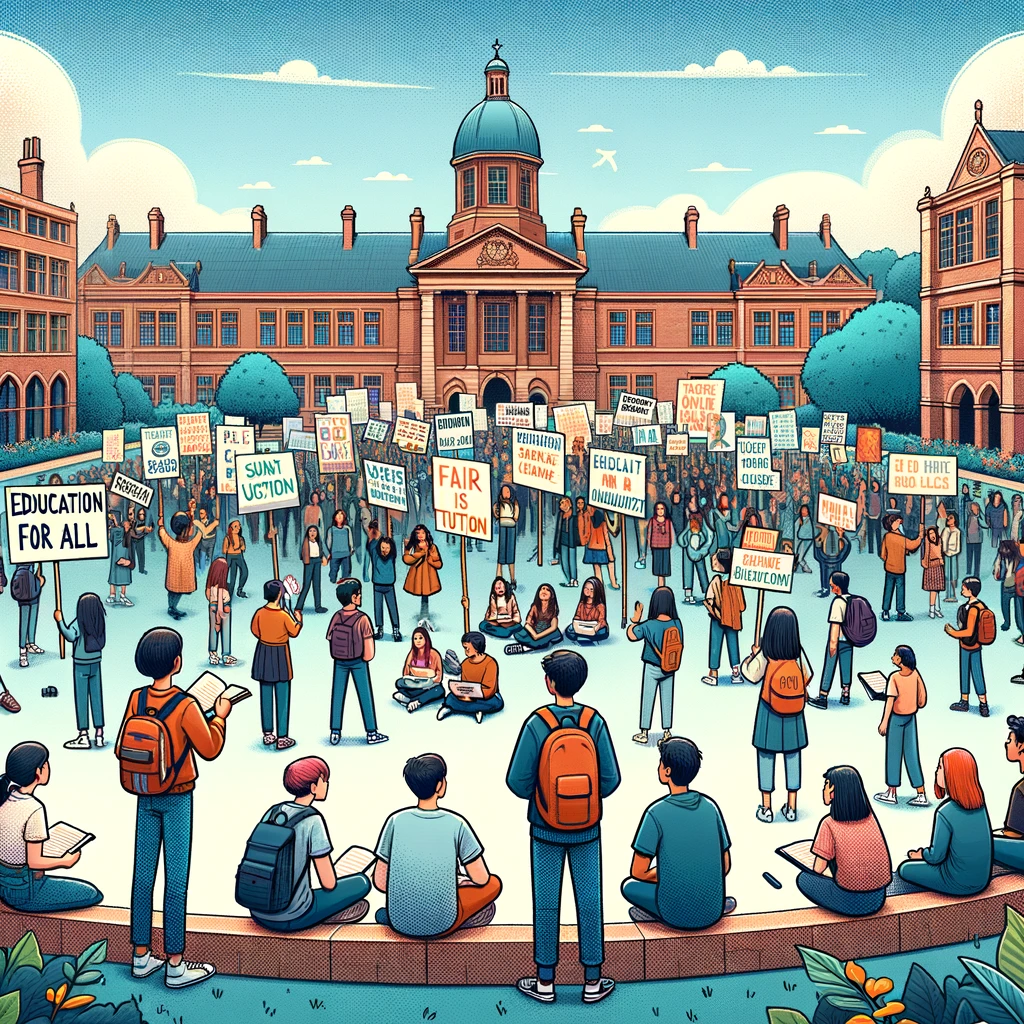At the City Campus of the College of Cape Town, a small yet vocal faction of students has initiated protests, voicing their concerns over what they perceive as a critical shortage of faculty members. This agitation among the students has been primarily triggered by the departure of a key lecturer, who, according to the student body, had been instrumental in bridging the educational gaps created by the ongoing scarcity of teaching staff. The students have issued a call for the reinstatement of this pivotal educator.
The catalyst for these protests can be traced back to a communication from the Student Representative Council to the college’s administration on 9 February. The council’s letter highlighted several pressing issues: the abrupt cancellation of classes due to the absence of lecturers, a lack of transparency regarding the departure of faculty members, and a pervasive sense of uncertainty and confusion among students regarding their studies, including coursework, assignments, and evaluations.
Somikazi Joni, who has taken the lead in organizing the protests, pointed out specific areas suffering from the lack of academic staff, notably in the Business Management, and Transport and Logistics departments. Additionally, Joni highlighted the absence of a lecturer for Mathematics Literature.
Nyakallo Mbali, a second-year student specializing in Transport and Logistics, expressed his frustration, saying,
“I’m protesting about the management of this college. The majority of us are NSFAS-funded, but you will find we don’t have textbooks… We don’t have lecturers. I spent almost six months last year without a Computer Literacy lecturer.”
Contrary to the claims made by the protesting students, Marsha Solomon, the acting manager of the campus, has countered these allegations. Solomon asserts that the college has successfully secured a complete roster of staff for the upcoming 2024 academic year. Addressing the protests directly, Solomon remarked,
“The students are protesting because they do not want the staff we have provided. We have incurred staff cuts, this is due to a reduction of student intake/numbers.”
This disagreement between the students and the college management underscores a complex issue involving educational quality, communication, and student welfare. As the situation unfolds, it remains to be seen how the institution will address the grievances of its students and whether a resolution can be found to ensure the continuity and quality of education at the College of Cape Town.

















